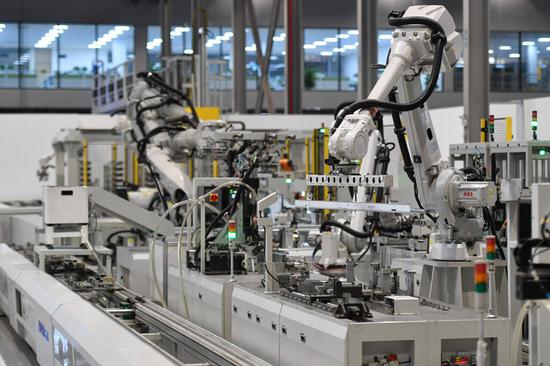
Photo taken on Dec. 17, 2021 shows the automated production line in the digital factory of Xio Lift in Linping District, Hangzhou, east China's Zhejiang Province. (Photo: Xinhua)
Chinese authorities have released an action plan to facilitate the digitalization of the consumer goods industry as the country moves to boost the integration of the digital and real economies, and create and meet consumer demand.
China aims to achieve notable improvement in the integration and application of digital technologies in the consumer goods industry by 2025, according to the plan jointly released by five government departments, including the Ministry of Industry and Information Technology.
The further integration and application of digital technologies would help improve the supply of consumer goods, expand industrial chains, enhance the industry's added value, and encourage enterprises to strengthen digital innovation in research and development and in their core competitiveness, the ministry said.
The proportions of consumer goods companies that have digitalized their management and operations, been equipped with digital tools for research, development and design, and introduced e-commerce to their businesses should all exceed 80 percent by 2025, according to the plan.
China also aims to foster 200 demonstration factories for smart manufacturing in sectors such as textiles and apparel, home appliances, consumer electronics, food and medicine during the plan period. It also aims to cultivate 50 demonstration cities that will achieve remarkable digitalization progress, product variety, quality and branding.
The plan specified 10 tasks to enhance product variety and quality and create brands, such as developing "internet-plus-consumer products" that improve people's well-being, promoting personalized and flexible production to reshape product development and production modes, and accelerating the establishment of a quality tracking system.


